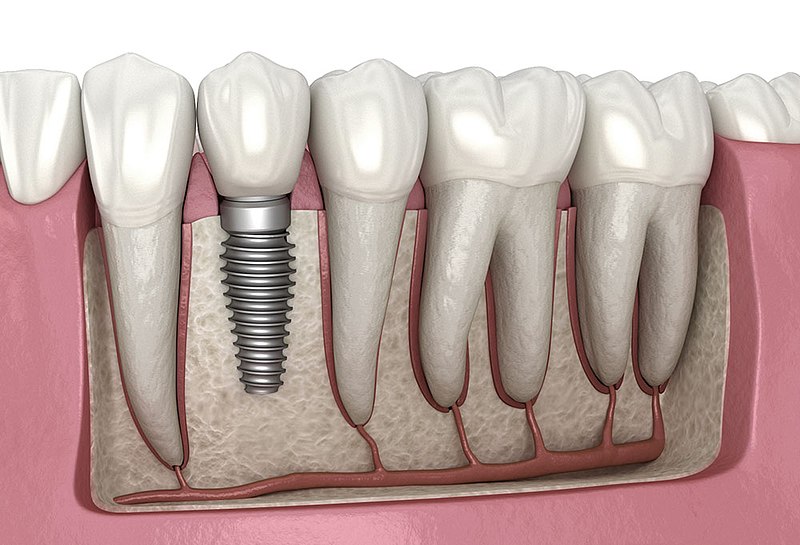Dental implants have revolutionized the field of tooth replacement, offering a long-lasting and natural-looking solution for those missing their front teeth. While dental bridges and dentures have been traditional options, dental implants have emerged as the gold standard due to their exceptional durability, functionality, and aesthetic appeal. In this comprehensive guide, we will explore the benefits of dental implants for front teeth, the candidacy requirements, the procedure itself, and the long-term maintenance needed to ensure a successful outcome.
Understanding the Advantages of Dental Implants for Front Teeth
When it comes to replacing a missing front tooth, dental implants offer numerous advantages over alternative options such as dental bridges and dentures. Here are some key benefits:
Preservation of Adjacent Teeth
Unlike dental bridges that require adjacent teeth to be ground down and crowned, dental implants do not affect the surrounding healthy teeth. This allows for better long-term oral health and preserves the natural structure of the adjacent teeth.
Jawbone Preservation
Dental implants replace both the root and crown of the missing tooth. The titanium implant post-fuses with the jawbone through a process called osseointegration, stimulating bone growth and preventing bone loss. This preserves the natural shape and density of the jawbone, maintaining a youthful facial structure.
Enhanced Stability and Chewing Strength
Dental implants provide superior stability and chewing strength compared to other options. The implant acts as an artificial tooth root, securely anchoring the prosthetic tooth in place. This allows for confident eating and speaking without worrying about slippage or discomfort.
Easy Maintenance
Dental implants are easy to maintain with regular oral hygiene practices such as brushing, flossing, and routine dental check-ups. They do not require special cleaning solutions or adhesives like dentures, making them a convenient and hassle-free choice.
Natural Appearance and Improved Confidence
Dental implants are designed to closely resemble natural teeth in both appearance and function. They blend seamlessly with the surrounding teeth, providing a natural-looking smile. With dental implants, individuals can regain their self-confidence and enjoy smiling, speaking, and eating without any self-consciousness. Click on this link to learn all about dental implants https://dentakay.com/dental-implants/
Are you the Right Candidate to Have a Dental Implant on a Front Tooth
Before proceeding with dental implant placement, it is essential to determine whether a patient is a suitable candidate for the procedure. Several factors are evaluated to ensure the success and longevity of the dental implant:
Sufficient Jawbone Density
Dental implants require a certain amount of healthy jawbone for optimal stability and integration. In the case of front teeth, the jawbone in that area may be naturally thinner compared to the back teeth. A dentist will assess the quality and quantity of the jawbone through imaging techniques such as X-rays or CT scans. If necessary, a bone graft may be recommended to strengthen and fortify the area before implant placement.
Overall Oral Health
Good oral health is crucial for the success of dental implant surgery. The dentist will evaluate the patient’s dental health, including the condition of the gums, presence of gum disease, and overall oral hygiene habits. Proper gum health is necessary for the healing process and long-term prognosis of the implant.
Medical History
The dentist will review the patient’s medical history to identify any conditions or medications that may affect the success of the dental implant procedure. Certain medical conditions, such as uncontrolled diabetes, may increase the risk of complications and require additional precautions.
Smoking Habits
Smoking has been linked to a higher risk of implant failure. Non-smokers generally have a success rate of over 95%, while smokers have a success rate of around 85%. It is highly recommended to quit smoking before undergoing dental implant surgery to improve the chances of a successful outcome.
The Dental Implant Procedure for Front Teeth
The dental implant procedure typically involves several stages and requires collaboration between the patient, dentist, and oral surgeon. Here is a step-by-step overview of the process:
1. Initial Consultation and Treatment Planning
During the initial consultation, the dentist will assess the patient’s oral health, discuss their goals and expectations, and explain the implant procedure in detail. X-rays or CT scans may be taken to evaluate the jawbone and plan for the optimal placement of the implant.
2. Tooth Extraction (if necessary)
If the front tooth is still present and cannot be saved, extraction may be necessary. In some cases, extraction may be planned several months in advance to allow for proper healing of the extraction site before implant placement.
3. Implant Placement
The implant placement procedure is typically performed under local anesthesia to ensure patient comfort. The dentist or oral surgeon will make a small incision in the gum tissue to access the jawbone. A hole is then drilled into the bone, and the titanium implant post is carefully inserted. The gum tissue is sutured back into place, and a temporary crown or denture may be provided to fill the gap during the healing period.
4. Osseointegration and Healing
After implant placement, a process called osseointegration occurs over the course of several months. During this time, the implant fuses with the jawbone, creating a strong and stable foundation for the prosthetic tooth. It is crucial to follow post-operative instructions provided by the dentist to ensure proper healing and integration.
5. Final Restoration
Once osseointegration is complete, the dentist will take impressions of the implant site to create a custom-made dental crown. The crown is designed to match the color, shape, and size of the surrounding natural teeth, providing a seamless and natural-looking result. The crown is then securely attached to the implant abutment, completing the restoration process.
Long-Term Maintenance of Dental Implants
After the successful placement of dental implants on the front teeth, proper maintenance is essential to ensure their longevity and functionality. Here are some key tips for long-term implant care:
Maintain Good Oral Hygiene: Brush your teeth twice a day with a soft-bristle toothbrush and fluoride toothpaste. Floss daily to remove plaque and debris from between the teeth and around the implant. Regular dental check-ups and professional cleanings are also important to monitor the health of the implant and surrounding tissues.
Avoid Excessive Force: While dental implants are durable, they can still be damaged by excessive force or trauma. Avoid biting on hard objects, such as ice or pens, and refrain from using your teeth as tools.
Quit Smoking: Smoking can compromise the success and longevity of dental implants. If you are a smoker, consider quitting to improve the chances of a successful outcome and reduce the risk of complications.
Monitor and Address Any Issues: If you experience any discomfort, pain, or changes in the appearance of your implant, contact your dentist immediately. Early detection and intervention can prevent further complications and ensure the long-term success of the implant.
Need front-tooth dental implants? Visit Dentakay today!
As the best implant dentists in Turkey, each member of our team at Dentakay is highly sought after for their skill, expertise, and commitment to superior patient care and comfort.
For more information on front tooth dental implants, or any other dental services, feel free to contact us now.








